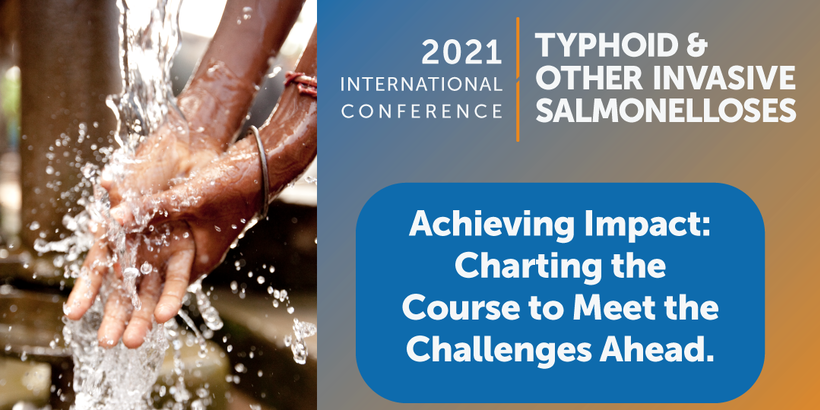When we last came together in 2019, we celebrated a growing momentum in the prioritization of typhoid prevention and control. We issued a call to action to harness this energy going forward. Later that year, we did just that as Pakistan became the first country to introduce typhoid conjugate vaccine into their national routine immunization program. As of today, nearly 30 million children have been vaccinated against typhoid.
Despite these exciting achievements, we could not foresee the challenges that lied ahead. The COVID-19 pandemic has caused global disruptions on an unprecedented scale. This pandemic upended the structures and systems in place for childhood immunization, for prioritizing new vaccine introductions, and for ensuring countries could make strategic health decisions. National leaders have prioritized COVID-19, and it has taken us some time to regain our footing in a new reality.
Despite the hurdles this pandemic has thrown our way, we’ve learned many lessons about our ability to take on typhoid. These lessons and strategies will propel us into the next generation of enteric fever control, guiding us closer to a typhoid-free future. The pandemic has reinforced the importance of our commitment to local capacity building and to strengthening the skills, abilities, processes, and resources that communities need to alleviate their typhoid burden. During the past two years we have witnessed dramatic progress in vaccine development techniques, the increased local capacity in lab processing and genomic sequencing, and new methods of low-cost surveillance including environmental surveillance and sero-surveys. We are turning a corner, moving to a new landscape of collaboration across geographic borders through the creative use of modern technology.
Reflecting our community’s commitment to learn new ways of weathering the storm, the theme for this year’s conference is Achieving Impact: Charting the Course to Meet the Challenges Ahead. This year, conference history will be made as more than 450 researchers, policy makers, immunization managers and advocates from 46 countries gather for a three-day full-scale virtual event
Our colleagues will connect through an engaging and interactive agenda of more than 90 speakers, more than 40posters, more than 60oral abstracts, 6 late breaker abstracts, and more than sessions covering policies, vaccine effectiveness, future of vaccines, and more. Participants will share and discuss research findings, exchange ideas, and identify strategies to reduce the burden of typhoid, paratyphoid, and invasive nontyphoidal Salmonella disease for communities around the world.
As we kick-off the 12th International Conference, I hope that these next three days serve as a reminder of why we are in this work together. Let this conference be evidence that despite the difficulties we face, the passion, dedication, and drive of our colleagues to stay the course continues to move us forward. I am confident that with the new ideas, new collaborations, and a renewed energy for enteric fever prevention and control, we will continue to chart the way forward with a shared vision for the future of taking on typhoid.
We will be sharing important updates and key highlights throughout the three days of the conference. Follow @PreventTyphoid or use #TakeOnTyphoid and #Typhoid2021 to join our conversation: ask questions, engage, and—most importantly—help us continue to chart the course to meet the challenges ahead.



